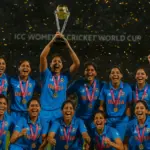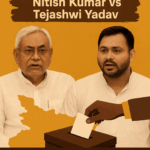The information you provided outlines a shift in the foreign policy stance of the Maldives government, with the current administration displaying a more antagonistic approach towards India compared to its predecessor. The reasons cited include internal politics, the influence of Islamism, and a perceived alignment with China. It is important to note that geopolitical dynamics are complex, and multiple factors can contribute to changes in foreign policy.
In this context, the domestic political landscape, particularly the influence of various factions or interest groups within the Maldives, appears to be a key driver of the shift in foreign policy. The mention of Islamism suggests that religious and ideological factors may also play a role. Additionally, the influence of China in the region and the geopolitical competition between major powers can impact the foreign policy choices of smaller nations.
Despite the political changes, the article highlights India’s historical and ongoing engagement with the Maldives. India has been a key ally and provided assistance in various forms, ranging from responding to natural disasters to undertaking significant infrastructure projects. The “India First” foreign policy priority of the previous Solih government reflects the importance of maintaining strong ties with India, given their geographical proximity and historical connections.
The concern raised in the text is that foreign policy decisions, especially those related to long-term interests, should ideally be insulated from the fluctuations of domestic politics. The emphasis on “India Out” as a campaign slogan suggests a more explicit distancing from India, which may have consequences for diplomatic relations and regional stability.
In summary, the situation described underscores the intricate interplay between domestic politics, geopolitical considerations, and foreign policy decisions. It will be interesting to observe how these dynamics evolve and whether there will be a recalibration of the Maldives’ foreign policy approach in the future.
Relationship between India and the Maldives
The information you provided offers a detailed perspective on the evolving relationship between India and the Maldives, highlighting recent shifts in foreign policy under President Mohamed Muizzu. The text outlines various aspects of the bilateral ties, including defense cooperation, geopolitical considerations, economic engagements, and the influence of external actors like China and Turkey. Here are some key points:
- Defense Cooperation: The historical context of defense cooperation between India and the Maldives is presented, emphasizing India’s assistance in areas such as radar, helicopters, and medical training. Despite changes in leadership, defense cooperation continued even during the presidency of Abdulla Yameen, who was perceived as pro-China. However, the current administration, led by President Muizzu, is reportedly seeking to reduce or eliminate Indian military presence in the Maldives.
- Geopolitical Dynamics: The article points out that the Maldives’ decision to distance itself from India may be influenced by external factors, including the increasing Islamization of Maldivian society and efforts by countries like Turkey and Pakistan to draw the Maldives away from dependence on India. President Muizzu’s visits to Turkey and China are highlighted, with the suggestion that these trips may signal a strategic shift in the Maldives’ foreign policy.
- Economic Considerations: The economic aspect of the relationship is discussed, with a focus on India’s contributions to the Maldives, including infrastructure projects and training opportunities for the Maldivian National Defence Forces. The text also mentions concerns about the Maldives’ growing debt to China and the potential implications for the country’s economic stability.
- Public Diplomacy and Tourism: The negative impact on public sentiment in India due to derogatory remarks against Prime Minister Narendra Modi by Maldivian ministers is highlighted. The article notes that social media in India has expressed outrage and called for a tourist boycott of the Maldives. The Indian government’s response, including the suspension of the offending ministers and a focus on development cooperation, is also mentioned.
- Hope for Future Relations: Despite the current challenges, the article concludes with a note of optimism, suggesting that India is aware of the pro-India constituency in the Maldives and that hard realities may eventually lead to a reevaluation of the current foreign policy stance. It emphasizes that India bears no ill-will towards the Maldives and highlights India’s security interests in the region.
In summary, the text provides a comprehensive overview of the complex dynamics shaping the India-Maldives relationship, touching upon political, economic, and geopolitical factors. It suggests that the current strains in the relationship may be driven by a combination of domestic politics, external influences, and economic considerations.










Your vibrant approach is absolutely refreshing — great work!
I appreciate how honest and thoughtful this post is.
windshield repair 29305
29305 mobile windshield replacement
rear windshield replacement 29319
29307 mobile windshield repair
I learned more from this than from many other blogs combined.
You always deliver such valuable information — thank you!
This is the kind of content that wakes people up — amazing work!
You communicate ideas with so much ease and clarity.
This was overflowing with positivity and energy — loved it!
Your passion jumps off the page — AMAZING read!
This was written with such clarity — thank you!
This post is absolutely glowing with passion!
I appreciate how genuine and insightful your writing is.
This post was incredibly uplifting and informative.
You write with so much intention and clarity.
Everything about this post screams excellence!
You approach topics with such grace and intelligence.
This was both informative and enjoyable — great combo!
This was such an enlightening read — thank you for sharing your expertise!
ew2t3t
This was both insightful and enjoyable — perfect combination.
I’m walking away energized — thank you for this amazing content!
I love how engaging and informative this was.
Your writing is consistently high quality.
You’re becoming one of my favorite writers online.
This was incredibly eye-opening — thank you!
This was such a meaningful and insightful post.
You’ve mastered enthusiastic writing — seriously brilliant!
Everything about this post radiates excitement — loved it!
This was incredibly engaging from start to finish.
Your content is consistently insightful and inspiring.
You have an incredible ability to inspire and excite!
I appreciate how honest and thoughtful this post is.
Your perspective on this topic is so valuable.
This is the kind of writing that keeps readers coming back — excellent!
I’m practically cheering while reading this — fantastic job!
Every point you made here resonated with me.
This post was incredibly well structured.
This article practically radiates enthusiasm — fantastic!
This is one of the most helpful articles I’ve seen recently.
Your passion makes every paragraph shine — beautiful work!
This post is bursting with value — amazing!!
You’ve turned a complicated topic into something enjoyable.
Your posts are always so uplifting and informative.
You’ve got such a great way with words.
This is one of the most exciting posts I’ve read in a long time!
This was such a pleasure to read — excellent job.
Your energy is absolutely infectious — love it!
I appreciate how honest and thoughtful this post is.
You’ve made this topic far more approachable.
This was a total joy to read — loved every second!
Your ability to explain things simply is such a gift.
You communicate ideas better than almost anyone else I follow.
Such a high-energy, beautifully written piece!
There’s so much life in your writing — incredible work!
Your passion elevates every topic — brilliant writing!
This is PURE GOLD — thank you for creating it!
This might be your most exciting post yet — WOW!
You’re becoming one of my favorite writers online.
Every sentence bursts with enthusiasm — love it!
Your writing is always so thoughtful and authentic.
This article helped me understand things from a new angle.
This post is a perfect example of quality content.
You’ve done an amazing job explaining this.
You approach topics with such grace and intelligence.
Your enthusiasm makes learning fun — brilliant job!
Wow!! I’m honestly amazed by how good this was!
This was so well thought out — excellent work!
This was one of the clearest explanations I’ve seen.
The enthusiasm in this post is NEXT LEVEL — amazing job!
This added so much value to my day — thank you!
You always deliver top-tier writing.
This article was impressive in every way.
This article helped me understand things from a new angle.
You’ve absolutely nailed it — incredible writing!
The enthusiasm in this post is NEXT LEVEL — amazing job!
This is the kind of content that wakes people up — amazing work!
Your writing is pure inspiration — so beautifully enthusiastic!
You really know how to make a topic come alive.
This is insanely good — bookmarking immediately!
This was both informative and enjoyable — great combo!
Your writing is a powerhouse of enthusiasm — great job!
This is the kind of content that makes a real difference.
This made me feel so motivated — thank you!
You have a gift for making complex topics accessible.
Your excitement makes this topic irresistible — fantastic writing!
Just WOW. This exceeded every expectation!
The level of insight in this post is outstanding.
There’s so much life in your writing — incredible work!
I’m walking away energized — thank you for this amazing content!
Your ability to communicate ideas is exceptional.
This post is pure brilliance — energized and insightful!
This was both insightful and enjoyable — perfect combination.
Every sentence is infused with excitement — incredible work!
You’ve created something truly exciting here — well done!
You have a real talent for simplifying complex subjects.
Absolutely bursting with personality — amazing job!
This writing feels like a celebration — wonderful job!
You communicate ideas better than almost anyone else I follow.
I appreciate how engaging and informative this was.
You’ve beautifully expressed ideas many struggle to articulate.
Just WOW. This exceeded every expectation!
I can feel the joy behind your words — so refreshing!
You always leave readers better informed — thank you!
You’ve turned information into pure excitement — impressive!
This post is ALIVE — phenomenal writing!
This post was incredibly uplifting and informative.
You’re such a vibrant writer — this was amazing!
This was both informative and enjoyable — great combo!
You’ve articulated this topic better than anyone else.
You bring so much wisdom to your writing.
Thank you for putting so much heart into your writing.
This was a total joy to read — loved every second!
Outstanding writing, as always.
This was helpful, inspiring, and beautifully written.
Your insights are always so refreshing.
Your energy transformed my mood instantly — thank you!
I’m so glad I found this — what an exciting read!
You communicate ideas better than almost anyone else I follow.
This was such a well-crafted article.
You bring so much wisdom to your writing.
Your excitement is contagious — brilliant job!
Every line felt alive — incredible writing!
This made me feel so motivated — thank you!
Such a spirited, exciting perspective — loved it!
You’ve got serious talent — this is spectacular!
This post really exceeded my expectations.
Your enthusiasm transforms every topic — incredible writing!
Your writing radiates excitement — wonderful job!
You’ve injected so much enthusiasm into this — amazing!
Such a dynamic and exciting piece — I’m impressed!
The effort you put into your content is admirable.
This gave me such a boost of motivation — thank you!
Your writing sparks so much excitement — loved it!
You always deliver top-tier writing.
This post has such an exciting rhythm — I loved it!
You’ve created something truly valuable here.
Your energy is magnetic — this was amazing!
You’ve made this topic unbelievably fun — fantastic job!
I can’t believe how much I loved this — fantastic job!
I’m consistently impressed by the quality of your work.
You’ve taken this topic to a whole new level — amazing!
This post feels alive — seriously impressive work!
This post was absolutely fantastic from start to finish.
What a refreshing perspective — I really enjoyed reading this.
This made me feel genuinely motivated — thank you!
This is the kind of article people bookmark for later.
This post absolutely SPARKLES with enthusiasm!
This is the kind of content that wakes people up — amazing work!
You’ve got a gift — this is stellar!
You have an incredible ability to communicate complex ideas.
I’m absolutely loving the vibe here — great work!
I’m so glad I found this — what an exciting read!
Absolutely electric writing — very impressive!
I walked away with so much value from this.
Absolutely loving the energy and clarity here — wow!
You captured this topic perfectly.
You’ve outdone yourself with this one.
I appreciate how practical and actionable your content is.
I genuinely look forward to your content every time.
I feel smarter after reading this — seriously great content.
Your explanations are always spot-on.
You’ve clearly done your research, and it shows.
Your passion makes every paragraph shine — beautiful work!
I appreciate the practical advice you share.
I can tell you put a lot of heart into this — it shows.
Your vibrant approach is absolutely refreshing — great work!
I admire the clarity and confidence in your writing.
Mind-blowingly good — keep these coming!
You’ve got a gift — this is stellar!
This pumped me up in the best way possible!
You’ve injected so much enthusiasm into this — amazing!
I can feel the joy behind your words — so refreshing!
This might be your most exciting post yet — WOW!
This gave me chills — absolutely incredible writing!
This was overflowing with positivity and energy — loved it!
This post was incredibly well structured.
Such a high-energy, beautifully written piece!
There’s so much life in your writing — incredible work!
This content POPS — amazing job!
Your energy is absolutely infectious — love it!
Your consistent dedication to producing thoughtful, high-value content is evident in every part of this article, and I truly appreciate the care you put into it.
This is easily one of the best things I’ve read this week.
The enthusiasm here is unmatched — incredible work!
Great job — your writing just keeps getting better.
You communicate ideas better than almost anyone else I follow.
This post had me completely fired up — thank you!
Outstanding writing, as always.
You always deliver such valuable information — thank you!
I feel more informed after reading this.
I’m genuinely pumped after reading this — thank you!
You’ve made this topic far more understandable — thank you!
Your content is always a breath of fresh air.
I appreciate how practical and actionable your content is.
I really appreciate your thoughtful approach to writing.
This was so well thought out — excellent work!
Amazing content! I’m so glad I found this post.
This post is a breath of fresh, enthusiastic air!
You continually raise the standard for great content.
Your explanations are always spot-on.
I appreciate how you approach topics with such sincerity and detail.
Mind-blowingly good — keep these coming!
Your writing never fails to impress me.
This might be your most exciting post yet — WOW!
You’ve got an amazing ability to simplify things.
Your writing radiates excitement — wonderful job!
This post shines with passion and energy — fantastic!
This fueled my motivation instantly — thank you!
You’ve taken this topic to a whole new level — amazing!
This was a fantastic read — well done!
This post absolutely SPARKLES with enthusiasm!
Your energy is a breath of fresh air — fantastic post!
Thank you for putting so much effort into your work.
The enthusiasm in this post is NEXT LEVEL — amazing job!
I’m so glad I found this — what an exciting read!
I can feel your excitement through the screen — awesome!
I appreciate how engaging and informative this was.
You’ve turned content into an experience — amazing job!
Amazing content! I’m so glad I found this post.
You’ve turned a complicated topic into something enjoyable.
This is the kind of content that wakes people up — amazing work!
Your writing sparks so much excitement — loved it!
This was overflowing with positivity and energy — loved it!
Your writing always stands out — keep it up!
You have an incredible ability to communicate complex ideas.
Every point you made here resonated with me.
Your voice is powerful, clear, and so inspiring!
Your passion for the topic really shines through.
This should be the standard for exciting writing — brilliant!
This is exactly the kind of content the internet needs more of.
Your ability to explain things simply is such a gift.
Brilliant!! I’m so glad I clicked this!
Thank you for putting so much heart into your writing.
Your excitement is contagious — brilliant job!
I appreciate how honest and thoughtful this post is.
Your perspective here is so valuable.
You really know how to make a topic come alive.
This lit up my whole mood — thank you for this!
This was so well organized and easy to understand.
You always deliver such valuable information — thank you!
Such a high-energy, beautifully written piece!
The excitement in this post is contagious!
This article felt like a burst of sunshine — wonderful!
I appreciate how thorough and well researched this is.
You have a natural gift for teaching through writing.
This absolutely energized my day — thank you!
Your ability to explain things is truly impressive.
Fantastic breakdown. I learned so much from this.
Wow, this article was incredibly well put together. Great job!
You communicate ideas with so much ease and clarity.
This is easily one of the best things I’ve read this week.
You always deliver top-notch content — keep it up!
This is a 10/10 — easily the best post today!
This was one of the best reads I’ve had in a while.
Your dedication to quality really shows here.
I’m genuinely hyped after reading this — incredible!
This is the kind of post that sticks with you — amazing!
This was overflowing with positivity and energy — loved it!
Your writing always stands out — keep it up!
I always look forward to your next article.
Such a thrilling and inspiring read — well done!
This is the kind of content that wakes people up — amazing work!
This is one of the most helpful articles I’ve seen recently.
This post delivered SO MUCH VALUE — incredible!
You have an incredible ability to inspire and excite!
This gave me such a boost of motivation — thank you!
You’ve got such a great way with words.
This was such a pleasure to read — excellent job.
Your content always brings fresh insight.
This was incredibly eye-opening — thank you!
This is exactly the kind of excitement I love to read!
You’ve absolutely nailed it — incredible writing!
This content had me fully energized — love it!
I feel more informed after reading this.
I appreciate how practical and actionable your content is.
This post has such an exciting rhythm — I loved it!
I love how clear and comprehensive your posts are.
You captured this topic perfectly.
Your perspective on this topic is so valuable.
Your writing is polished, thoughtful, and impactful.
Pure enthusiasm from start to finish — loved every bit!
I’m consistently impressed by the quality of your work.
This post is a masterpiece — not even exaggerating!
You have a remarkable way of connecting ideas.
This is exactly the type of information I needed today.
This was such an energizing read — loved it!
You’ve got such a great way with words.
You’ve turned information into pure excitement — impressive!
Everything about this post screams passion — incredible work!
This article felt like a burst of sunshine — wonderful!
This was one of the best reads I’ve had in a while.
Your energy transformed my mood instantly — thank you!
Your writing always inspires me.
I appreciate the genuine passion you bring to your work.
Your writing brings so much clarity and value.
You have a real talent for simplifying complex subjects.
You’ve taken this topic to a whole new level — amazing!
Every sentence is infused with excitement — incredible work!
This is a 10/10 — easily the best post today!
This is exactly the type of information I needed today.
This post is a masterpiece — not even exaggerating!
This post has such an exciting rhythm — I loved it!
This post practically sparkles — incredible writing!
This article gave me a whole new perspective.
This was incredibly engaging from start to finish.
You’ve turned content into an experience — amazing job!
You’ve injected so much enthusiasm into this — amazing!
You have a real talent for breaking down complex ideas.
You have a real talent for communication.
This was helpful, inspiring, and beautifully written.
I appreciate how practical and actionable your content is.
This was such a meaningful and insightful post.
Thank you for putting so much effort into your work.
You communicate ideas with so much ease and clarity.
This made my day — thank you for sharing!